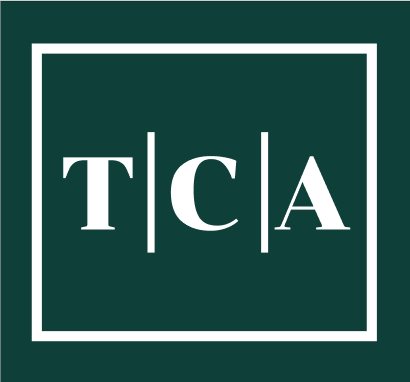Accounting Terms to Know
The world of accounting, like most industries, has its own jargon and language. Let’s be honest, there are many accounting terms we use daily, and you should not expect to know them all unless you have studied or worked in an accounting-related field. When choosing an accountant or accounting firm, it is important to work with people who communicate effectively and explain the details in an understandable manner. This is what makes TCA stick out from other firms. Our ability to communicate successfully and meet our clients where they are is one of the reasons why our clients are accomplishing their financial and tax goals.
At TCA...We listen, we provide clear feedback, offer guidance throughout the entire year, and essentially, help you prosper. Interested in learning more about becoming a TCA client?
Even though we are committed to making sure you know the ins and outs of your financial situation, there is an immense benefit to knowing key accounting terms. Familiarizing yourself with these words will not only increase your confidence when talking about your individual or business’ financial affairs, but it will help you gain a better awareness of the current state of your finances and sharpen your ability to make sound decisions for the future. Here are 5 basic accounting terms that you should know.
Certified Public Accountant (CPA)
This title is granted to accountants who have satisfied the education, experience, and examination requirements necessary to be certified as a public accountant.
Cash Flow
The money that comes into the business from its customers and where that money is spent by the business. We call a positive number net gain, which specifies that more money came into the business than out. A negative number is labeled net loss, meaning more cash flowed out from the business than what came in.
Net income
The total earnings. This can also be called net profit. You calculate the net income by subtracting the total amount of expenses from the entire amount of revenue.
Gross profit
The amount of money made after subtracting all direct costs relating to manufacturing, producing, purchasing, and/or selling products or services. Calculate this by subtracting the cost of goods sold (COGS) from your total sales.
Accounts receivable
The amount of money owed by customers or clients to a business after the products and/or services have been delivered, provided, and/or used.
Well, there you have it! 5 accounting terms to add to your vocabulary. If you are itching to learn more accounting terms, never fear! We will have more “accounting things you should know” blog posts coming soon.
Stay connected!


